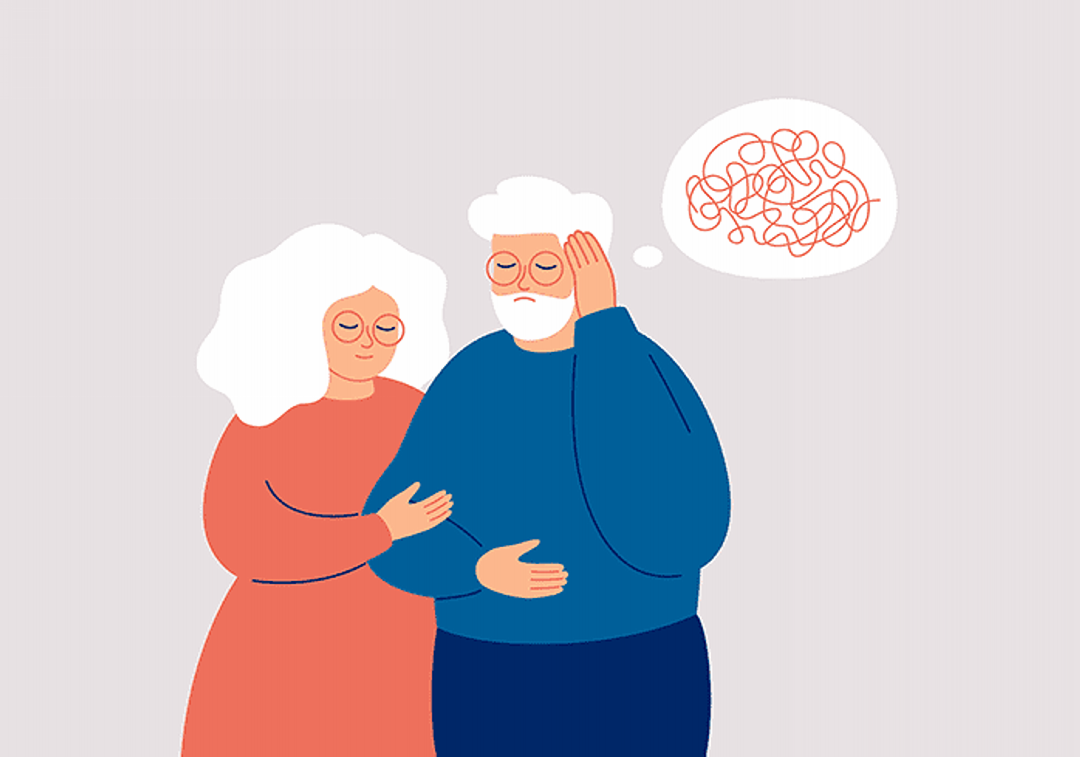Discover what guilt-tripping is, together with the causes and explanation why some folks guilt-trip others. Plus, learn how to cease guilt-tripping and converse extra clearly.
It may be troublesome to ask somebody to do one thing they won’t need to do, like supplying you with a journey to the airport or masking a shift for you at work. Maybe that’s why so many people resort to guilt-tripping, which is a tactic utilizing guilt as a manipulation instrument. And whereas within the second it would really feel simpler than simply being direct about our wants, guilt-tripping can injury relationships and upset each events concerned.
It’s not essentially a acutely aware option to guilt journey — it might probably stem varied underlying points, together with insecurity, unmet wants, or realized patterns from previous relationships. By understanding extra about what guilt-tripping is and why it occurs, we are able to be taught to alter our behaviors, problem others once they overstep, and finally, construct more healthy relationships.
What’s guilt-tripping?
Guilt-tripping is a type of emotional manipulation through which an individual leverages emotions of guilt to regulate or affect another person’s actions. It typically manifests in shut relationships, like with members of the family, buddies, or romantic companions. The individual utilizing guilt-tripping might not all the time pay attention to their habits, however it might probably trigger important emotional and psychological hurt to everybody concerned.
Guilt-tripping exploits the pure human need to keep away from emotions of guilt. The individual doing the guilt-tripping typically feels dangerous about asking for one thing, and the individual being requested agrees to alleviate their very own discomfort. This tactic might be refined or not and is commonly wrapped in seemingly harmless or caring language, making it difficult to note and speak about with individuals who resort to guilt-tripping.
Emotional and psychological results
Giver: The one who guilt journeys may really feel a short lived sense of satisfaction or management, however this habits can result in long-term relationship injury. Over time, they could expertise guilt and remorse for his or her manipulative actions, contributing to a cycle of unfavorable feelings and strained relationships.
Receiver: The individual on the receiving finish of guilt-tripping typically feels resentment or frustration. They may adjust to the manipulator’s calls for to keep away from battle or emotional discomfort, resulting in anger or a sense of powerlessness. Over time, this could injury belief and intimacy within the relationship.
Widespread guilt-tripping phrases and eventualities
Recognizing whenever you’re guilt-tripping somebody—or when it’s occurring to you—is a vital first step. Listed here are some examples of widespread guilt-tripping phrases and eventualities.
-
“In the event you actually beloved me, you’d do that for me.” This manipulates feelings by equating love with compliance.
-
“In any case I’ve achieved for you, you possibly can’t do that one factor?” This leverages previous actions to create a way of obligation and guilt.
-
“I suppose I’ll simply do it myself since nobody else will.” This induces guilt by implying that the individual is neglectful or uncaring.
What causes guilt-tripping?
This kind of manipulative habits is commonly a response to complicated emotional and psychological wants.
Why some folks guilt-trip others
-
Insecurity: If we really feel insecure or worry rejection, we might resort to guilt-tripping as a option to get others’ consideration. By making others really feel responsible, we search reassurance and validation.
-
Unmet wants: When we’ve got unmet emotional wants, reminiscent of the necessity for love, respect, or validation, we’d use guilt-tripping to meet them. By making others really feel responsible, we attempt to get what we want in a approach we predict will work
-
Energy dynamics: Guilt-tripping generally is a instrument for sustaining management or energy in a relationship. By making the opposite individual really feel responsible, we are able to steer their habits and choices to our benefit.
-
Realized habits: We frequently learn to work together and talk from our households. If we grew up in an surroundings the place guilt-tripping was a standard option to affect habits, we’d undertake these techniques ourselves. For instance, if a mum or dad regularly makes use of guilt to get their youngster to conform, the kid may internalize this as a suitable interplay.
-
Emotional patterns: Previous relationships, whether or not with household, buddies, or romantic companions, also can form how we talk and handle our feelings. If we’ve got been persistently guilt-tripped in previous relationships, we’d undertake related techniques, both unconsciously or as a option to regain a way of management.
3 indicators that you just may be predisposed to guilt-tripping
Sure indicators can point out that you just may be liable to utilizing guilt-tripping as a manipulation tactic. By understanding the psychological and situational elements that contribute to guilt-tripping, in addition to the affect of upbringing and previous relationships, you possibly can acquire perception into why you or others may have interaction on this habits.
-
Frequent use of guilt-inducing language: In the event you typically use phrases that suggest guilt, reminiscent of “In the event you cared about me, you’d …” or “I suppose I’m simply not essential to you,” you may be somebody who guilt-trips others.
-
Reliance on emotional appeals: In the event you regularly depend on feelings to get your approach, relatively than clear and direct communication, you may be utilizing guilt-tripping as a technique.
-
Problem expressing wants instantly: In the event you wrestle to claim your wants and wishes overtly and instantly, you may resort to guilt-tripping as an oblique option to talk and get what you need.
How do I cease guilt-tripping? 10 steps
By following these steps, you possibly can acknowledge and transfer away from guilt-tripping habits. This could enhance your relationships and improve your individual emotional wellbeing.
1. Domesticate self-awareness in an effort to acknowledge patterns of habits
Take note of your relationships and see if you end up utilizing guilt to affect others. Mirror on particular conditions the place you’ve used guilt-inducing language or techniques. Maintaining a journal can assist you observe these situations and perceive the patterns in your habits.
💙 Take a second to attach with what’s occurring in your physique and thoughts by Checking in with Your self.
2. Mirror in your motives to know why you’re feeling the necessity to guilt-trip
Are you searching for consideration, management, or validation? Reflecting in your motives can assist you deal with the underlying emotional wants driving this habits. Ask your self what you actually need from the opposite individual and why you’re feeling unable to ask for it instantly.
💙 Attempt Come to Heart, a guided meditation with Jeff Warren that will help you observe self-reflection.
3. Follow empathy to inspire your self to do issues otherwise
Empathy is the power to know and share the sentiments of another person. Whenever you observe empathy, you change into extra conscious of how your phrases and actions have an effect on others. Contemplate how the individual you’re interacting with feels when they’re subjected to guilt-tripping techniques. This could inspire you to alter your method.
💙 Follow creating Empathy with the assistance from Tamara Levitt’s Relationships with Others sequence.
4. Use clear communication to enhance your relationships
Efficient communication entails expressing your wants and emotions actually and instantly, with out resorting to guilt or manipulation. Use “I” statements to speak your emotions and wishes. For instance, as a substitute of claiming, “You by no means assist me, and it makes me really feel unappreciated,” say, “I really feel unappreciated after I don’t obtain assist. I would like help with this process.”
💙 Learn the way Form Communication can strengthen your relationships.
5. Set and respect boundaries to maneuver away from guilt-tripping techniques
Setting wholesome boundaries entails respecting others’ autonomy and their proper to make their very own selections with out being manipulated. Clearly talk your individual boundaries and respect the boundaries of others. Perceive that everybody has the suitable to say no or disagree with out being made to really feel responsible.
6. Develop emotional regulation abilities to help completely different responses
Emotional regulation is the power to handle and reply to your feelings in a wholesome approach. Follow strategies reminiscent of deep respiratory, mindfulness, or meditation to remain calm and centered throughout conversations. This can assist you to reply extra thoughtfully and keep away from resorting to guilt-tripping techniques.
💙 Use your breath to shift the way you reply with the Breathe to Calm Down meditation.
7. Search help to get you thru the early phases
Altering behaviors might be difficult, and searching for help from a therapist or counselor can assist. An expert can assist you discover the basis causes of your guilt-tripping habits and train you more healthy communication methods. They will additionally present a protected house to observe new abilities and obtain suggestions.
8. Change guilt with constructive reinforcement
As a substitute of utilizing guilt to affect others, observe utilizing constructive reinforcement. Acknowledge and respect the constructive actions and contributions of others. Categorical gratitude and encouragement, which might enhance your relationships too.
💙 Permit appreciation and positivity to flourish with 7 Days of Gratitude, a weeklong meditation sequence.
9. Have interaction in self-care so that you be ok with your life
Care for your emotional and psychological wellbeing. Have interaction in actions that carry you pleasure and success. Whenever you be ok with your self and your life, you’re much less prone to depend on manipulative techniques to satisfy your wants.
💙 Put aside time to Ship In Like to your self each single day.
10. Educate your self to realize insights into constructive relationships
Study extra about wholesome communication and relationship dynamics. There are lots of sources out there, together with books, on-line programs, and workshops that may present precious insights and techniques for enhancing your relationships with others.
12 methods to cope with guilt-tripping from others
When somebody is guilt-tripping you, it’s essential to have methods that help you in dealing with the scenario and defending your emotional wellbeing.
1. Acknowledge the indicators
Concentrate on widespread guilt-tripping phrases and techniques, reminiscent of making you’re feeling accountable for their happiness or wellbeing. Discover patterns the place you’re feeling manipulated or pressured into actions that make you uncomfortable.
2. Keep calm
Guilt-tripping can set off robust emotional responses, however staying calm helps you suppose clearly and reply successfully. Follow deep respiratory or rely to 10 earlier than responding to maintain your feelings in verify.
3. Set clear boundaries
Clearly talk your limits and what behaviors are unacceptable. For instance, you may say, “I perceive you’re upset, however I don’t respect being made to really feel responsible. Let’s discover a higher option to talk about this.”
4. Use assertive communication
Use “I” statements to precise your emotions and wishes with out being accusatory. For instance, say, “I really feel uncomfortable whenever you use guilt to get me to do one thing. I favor we talk about our wants overtly and actually.”
5. Follow emotional independence
Sustaining emotional independence means not permitting others to dictate your emotions or actions via guilt. Remind your self that you’re accountable for your feelings and choices. Acknowledge others’ emotions however acknowledge that their feelings should not your duty to repair.
6. Reply with empathy
Empathy can assist de-escalate a scenario and present the opposite individual that you just care about their emotions with out giving in to their manipulative techniques. As an example, you possibly can say, “I perceive that you just’re feeling harm, however I would like you to respect my determination.”
7. Supply options
Counsel other ways to handle the opposite individual’s wants with out giving in to guilt. For instance, if they need your assist however you’re unable to help, suggest one other answer or a unique time when you possibly can assist. This reveals you’re prepared to help them, however in your phrases.
8. Acknowledge constructive habits
When folks specific their wants instantly and with out guilt, provide constructive suggestions. This encourages more healthy patterns and reduces the probability of future guilt-tripping.
9. Disengage if essential
If the guilt-tripping persists and you are feeling overwhelmed, it’s okay to disengage briefly. Politely excuse your self from the dialog and take a while to regain your emotional stability. This could forestall escalation and provides each events time to replicate.
10. Search exterior help
In the event you discover it difficult to deal with guilt-tripping by yourself, search help from a trusted good friend, member of the family, or therapist. They will offer you steerage, reassurance, and techniques to handle and reply to manipulative habits successfully.
11. Educate the guilt tripper
Typically, folks guilt journey with out realizing the affect of their habits. In the event you really feel comfy, gently educate them about how their actions have an effect on you. Use particular examples for example your level and counsel more healthy methods to speak.
12. Prioritize self-care
Have interaction in actions that nurture your wellbeing, reminiscent of train, hobbies, or spending time with supportive folks. Self-care helps you keep resilient and higher outfitted to deal with difficult interactions.
The right way to cease guilt-tripping FAQs
How can I inform if I’m unconsciously guilt-tripping somebody?
To know in case you’re unconsciously guilt-tripping somebody, replicate on the way you sometimes speak with them. Ask your self in case you typically use phrases that suggest guilt, reminiscent of, “In the event you actually cared, you’d …” or “In any case I’ve achieved for you.” These phrases place the opposite individual able the place they really feel compelled to behave out of guilt relatively than from a spot of need.
Contemplate in case you really feel a way of satisfaction or management when others comply together with your requests after you have got used guilt-inducing statements. It’s possible you’ll uncover additional insights and acknowledge patterns of habits by holding a journal of your conversations and discussing them with a trusted good friend or therapist.
What are the long-term results of guilt-tripping on relationships?
The long-term results of guilt-tripping on relationships might be damaging. For the individual being guilt-tripped, it might probably result in emotions of resentment, frustration, and diminished shallowness. Over time, this impacts belief and intimacy, inflicting points. The manipulator may initially really feel a way of management, however this typically provides option to emotions of guilt and remorse, particularly as the connection unravels. Persistent guilt-tripping can create a poisonous dynamic, the place real communication and mutual respect are changed by manipulation and emotional misery. It may be damaging.
Is guilt-tripping poisonous?
Sure, guilt-tripping is taken into account poisonous as a result of it manipulates somebody’s feelings to realize a desired final result, typically on the expense of their wellbeing. This habits undermines wholesome communication and mutual respect in relationships. It creates an surroundings the place the guilt-tripped individual feels pressured to conform out of worry or obligation relatively than real willingness. Over time, this could result in emotional hurt, together with nervousness, lowered shallowness, and strained relationships. The poisonous nature of guilt-tripping lies in its potential to distort the pure give-and-take of wholesome interactions, changing it with a cycle of manipulation and resentment.
How do you outsmart a guilt-tripper?
Outsmarting a guilt-tripper entails utilizing assertive communication and setting clear boundaries. By following these steps, you possibly can counteract guilt-tripping habits whereas sustaining your integrity and emotional wellbeing.
-
Acknowledge the tactic: Perceive when somebody is utilizing guilt to control you.
-
Keep calm and composed: Don’t react emotionally or defensively.
-
Set boundaries: Clearly talk what you’re and aren’t prepared to do.
-
Use assertive communication: Reply with “I” statements to precise your emotions and wishes. For instance, “I really feel uncomfortable when guilt is used to affect my choices. I favor open and sincere communication.”
-
Supply options: Counsel different methods to handle their wants that don’t contain guilt.
-
Preserve emotional independence: Remind your self that you’re not accountable for anybody else’s emotions or reactions.
Is guilt-tripping the identical factor as gaslighting?
No, guilt-tripping and gaslighting are completely different types of manipulation. Guilt-tripping entails making somebody really feel responsible to affect their habits, typically by exploiting their sense of duty or obligation. It’s a option to management somebody’s actions via emotional stress. Gaslighting is a extra insidious type of manipulation the place the perpetrator makes the sufferer doubt their very own perceptions, reminiscences, or sanity. Gaslighting goals to create confusion and self-doubt, making the sufferer extra depending on the manipulator’s model of actuality. Whereas each are dangerous and manipulative, gaslighting entails a deeper degree of psychological abuse in comparison with guilt-tripping.



